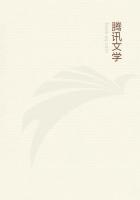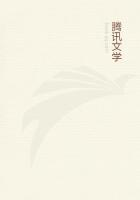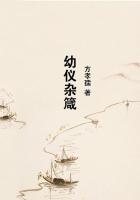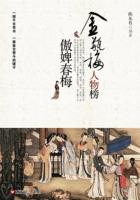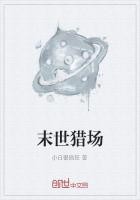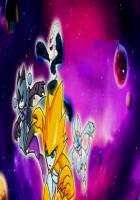IV. That we may understand what the Christian Faith is, we must define Faith in generall, and distinguish it from those other acts of the minde wherewith commonly it is confounded. The object of Faith universally taken, namely for that which is beleev'd, is evermore a proposition, (that is to say a speech affirmative, or negative) which we grant to be true. But because Propositions are granted for divers causes, it falls out, that these kind of concessions are diversly called: But we grant Propositions sometimes which notwithstanding we receive not into our mindes; and this either for a time, to wit, so long, till by consideration of the consequencies, we have well examin'd the truth of them, which we call supposing; or also simply, as through feare of the Lawes, which is to professe, or confesse by outward tokens; or for a voluntary compliance sake, which men use out of civility to those whom they respect, and for love of Peace to others, which is absolute yeelding. Now the Propositions which we receive for truth, we alwaies grant for some reasons of our owne, and these are deriv'd either from the Proposition it selfe, or from the Person propounding. They are deriv'd from the Proposition it selfe, by calling to minde what things those words which make up the Proposition doe by common consent usually signifie: if so, then the assent which we give is called knowledge, or Science. But if we cannot remember what is certainly understood by those words, but sometimes one thing, sometimes another seeme to be apprehended by us, then we are said to thinke. For example, if it be propounded that two and three makes five; and by calling to minde the order of those numerall words, that it is so appointed by the common consent of them who are of the same language with us, (as it were by a certaine contract necessary for humane society) that five shall be the name of so many unities as are contain'd in two and three taken together, a man assents, that this is therefore true because two and three together, are the same with five. This assent shall be called knowledge, and to know this truth is nothing else but to acknowledge that it is made by our selves; For by whose will and rules of speaking the number... is called two,... is called three, &c... is called five, by their will also it comes to passe, that this Proposition is true, Two and three taken together makes five. In like manner if we remember what it is that is called theft, and what injury, we shall understand by the words themselves, whether it be true that theft is an injury, or not. Truth is the same with a true Proposition; but the Proposition is true in which the word consequent, which by Logicians is called the praedicate, embraceth the word antecedent in its amplitude, which they call the Subject; and to know truth is the same thing as to remember that it was made by our selves in the common use of words. Neither was it rashly, or unadvisedly said by Plato of old, that knowledge was memory. But it happens sometimes that words although they have a certaine, and defin'd signification by constitution, yet by vulgar use either to adorne, or deceive, they are so wrested from their owne significations, that to remember the conceptions for which they were first impos'd on things is very hard, and not to be maistered but by a sharpe judgement, and very great diligence. It happens too, that there are many words which have no proper, determin'd, and every where the same signification; and are understood not by their owne, but by vertue of other signes us'd together with them. Thirdly, there are some words of things unconceivable; of those things therefore whereof they are the words, there is no conception; and therefore in vaine doe we seeke for the truth of those Propositions, which they make out of the words themselves. In these cases, while by considering the definitions of words we search out the truth of some proposition, according to the hope we have of finding it, we thinke it sometimes true, and sometimes false; either of which apart is called thinking, and also beleeving; both together, doubting. But when our reasons for which we assent to some Proposition, derive not from the Proposition it selfe, but from the Person Propounding, whom we esteeme so learned that he is not deceiv'd, and we see no reason why he should deceive us; our assent, because it growes not from any confidence of our owne, but from another mans knowledge, is called Faith: And by the confidence of whom, we doe beleeve, we are said to trust them, or to trust in them. By what hath been said, the difference appeares first betweene Faith, and Profession; for that is alwaies joyn'd with inward assent, this not alwayes; That is an inward perswasion of the minde, this an outward obedience. Next, betweene Faith, and Opinion; for this depends on our owne reason, that on the good esteeme we have of another. Lastly betweene Faith and Knowledge; for this deliberately takes a proposition broken, and chewed; that swallowes downe whole and entire. The explication of words, whereby the matter enquir'd after is propounded, is conducible to knowledge; nay, the onely way to know, is by definition. But this is prejudiciall to Faith; for those things which exceede humane capacity, and are propounded to be beleev'd, are never more evident by explication, but on the contrary more obscure, and harder to be credited. And the same thing befalls a man who endeavours to demonstrate the mysteries of Faith by naturall reason, which happens to a sick man, who will needs chew before he will swallow his wholsome, but bitter Pills; whence it comes to passe, that he presently brings them up againe, which perhaps would otherwise, if he had taken them well downe, have prov'd his remedy.
同类推荐
热门推荐
十八岁,我有勇气独自旅行
《18岁,我有勇气独自去旅行》是一本主打“成人礼”概念的游记、小说、图文集。精选适合18岁学生独自旅行的国内景点或城市,并配以当地为背景的小说,搭配景点介绍的形式,让读者们可以够鼓起勇气,行走领略我国的好山好水。本书整体定位为积极向上,充满青春朝气及正能量。旅行是一种病,当你把身边的人都传染了,而你自己根本不想从中跑出来。人生,是一次充满未知的旅行。去了不同的地方,看了不同的风景,知道了不同的事,感悟了不同的人生。

